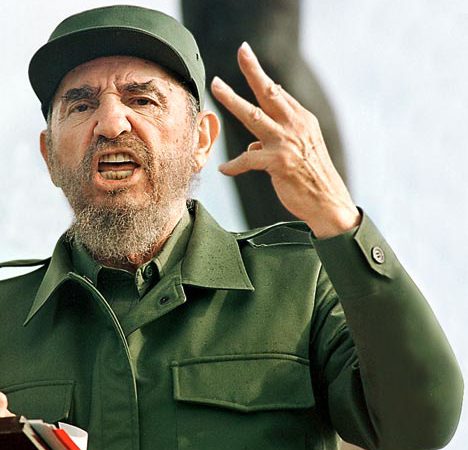Fidel Castro is dead! So many people are praising his enlightened leadership. He built a Cuba, they say, that has “good medical care and high literacy rates.”
But what about all the people he imprisoned, tortured and killed (the numbers range widely from 10,000 -100,000)? Castro is just the latest newly deceased despot to join the likes of Mao Zedong (China), Pol Pot (Cambodia), Joseph Stalin (Russia) and Hugo Chavez (Venezuela). All these dreamed and worked to bring about a socialist paradise on earth. How much human toll must be paid toward that futile, vile end?
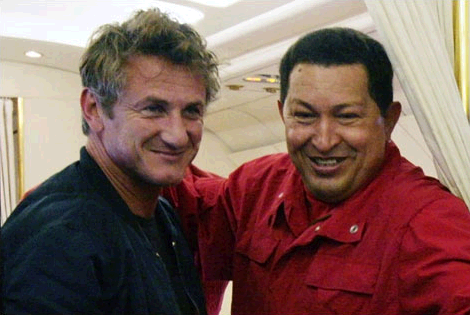 What is wrong with the American celebrities who make pilgrimage to Venezuela to praise Hugo Chavez and his successor Nicolás Maduro, rulers who have systematically driven their nation to ruin and starvation?
What is wrong with the American celebrities who make pilgrimage to Venezuela to praise Hugo Chavez and his successor Nicolás Maduro, rulers who have systematically driven their nation to ruin and starvation?
How could a leader of the free world like Canadian Prime Minister Trudeau pay eulogy to this tyrant?
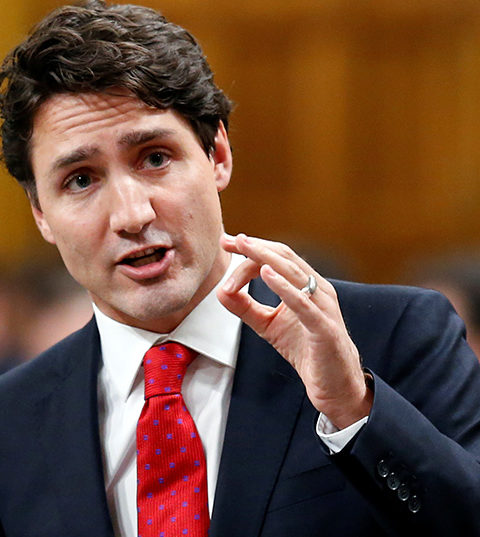 It is with deep sorrow that I learned today of the death of Cuba’s longest serving President. Fidel Castro was a larger than life leader who served his people for almost half a century. A legendary revolutionary and orator, Mr. Castro made significant improvements to the education and healthcare of his island nation. While a controversial figure, both Mr. Castro’s supporters and detractors recognized his tremendous dedication and love for the Cuban people who had a deep and lasting affection for “el Comandante ….
It is with deep sorrow that I learned today of the death of Cuba’s longest serving President. Fidel Castro was a larger than life leader who served his people for almost half a century. A legendary revolutionary and orator, Mr. Castro made significant improvements to the education and healthcare of his island nation. While a controversial figure, both Mr. Castro’s supporters and detractors recognized his tremendous dedication and love for the Cuban people who had a deep and lasting affection for “el Comandante ….
On behalf of all Canadians, Sophie and I offer our deepest condolences to the family, friends and many, many supporters of Mr. Castro. We join the people of Cuba today in mourning the loss of this remarkable leader.
My own president, Barack Obama, seeking to avoid offense, provided a “nuanced view,” neither praising Castro nor acknowledging the reality of the tyranny he brought to the Cuban people.
At this time of Fidel Castro’s passing, we extend a hand of friendship to the Cuban people. We know that this moment fills Cubans – in Cuba and in the United States – with powerful emotions, recalling the countless ways in which Fidel Castro altered the course of individual lives, families, and of the Cuban nation. History will record and judge the enormous impact of this singular figure on the people and world around him.
How could Western elites and cultural and political leaders heap praises on tyrants? How can they see what Castro and Chavez have wrought and commend instead of condemning?
How could Western political and cultural leaders visit Stalin’s Russia and return to speak of the worker’s paradise he was creating? I wondered that when I was growing up and watching so many Western academic and establishment leaders praise the Soviet Union and Maoist China.
Stalin manufactured the Holodomor famine in the Ukraine (1932-1933) and 10 million people starved to death. It is estimated that Stalin’s 30-year reign inflicted 20-60 million people in the Soviet Union with state-sponsored murder.
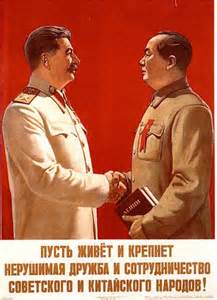 Mao topped even this. His Great Leap Forward (1958-1962), an effort to stimulate economic growth, deliberately starved to death 45 million peasants. Over his 40-year rule Mao killed an estimated 78 million people.
Mao topped even this. His Great Leap Forward (1958-1962), an effort to stimulate economic growth, deliberately starved to death 45 million peasants. Over his 40-year rule Mao killed an estimated 78 million people.
This is unspeakable horror.
Many Western intellectuals witnessed these atrocities firsthand, apparently without any qualms. Too many Western leaders turned a blind eye. Others actually justified these murders as the necessary price for social justice. Many consciously lied about the realities they had seen. They wrote glowing reports of what was happening in the “worker’s paradise.”
We see the remnant of this kind of thinking in the praise coming from many Western leaders for Fidel Castro. How can so many brilliant men and women deny the obvious truth?
I have wrestled with these questions often in my lifetime. I finally found the answer in an essay written by the English journalist and writer, Malcolm Muggeridge.
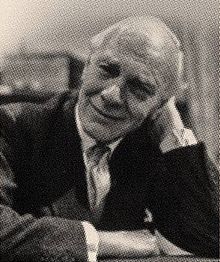 Muggeridge grew up in an early 20th century Marxist family in London, England. He traveled with his father, a Communist zealot, listening to his speeches. He witnessed his father and friends plot the overthrow of the capitalist West.
Muggeridge grew up in an early 20th century Marxist family in London, England. He traveled with his father, a Communist zealot, listening to his speeches. He witnessed his father and friends plot the overthrow of the capitalist West.
And I accepted completely the views of these good men, that once they were able to shape the world as they wanted it to be, they would create a perfect state of affairs in which peace would reign, prosperity would expand, men would be brotherly, and considerate, and there would be no exploitation of man by man, nor any ruthless oppression of individuals. And I firmly believed that, once their plans were fulfilled, we would realize an idyllic state of affairs of such a nature. They were good men, they were honest men, they were sincere men.
Malcolm idolized his father and his father’s friends. He joined the Communist movement himself. His father’s passion became his passion.
These were the “golden days of liberalism.” Liberal journalists, like those today, rarely achieved objectivity. Statist propaganda would be a better description. Muggeridge exposed this.
We were required to end anything we wrote on a hopeful note, because liberalism is a hopeful creed. And so, however appalling and black the situation that we described, we would always conclude with some sentence like: “It is greatly to be hoped that moderate men of all shades of opinion will draw together, and that wiser councils may yet prevail.”
This was the case when he sought an assignment as a correspondent with The Guardian in Moscow during the 1932-33 Holodomor famine in Ukraine. Muggeridge was expecting to see the glory of the Soviet paradise. He writes about “arriving there fully prepared to see in the Soviet regime the answer to all our troubles [in England].”
What he actually saw was not a workers’ wonderland, but the brutal reality of the communist system. He saw a quest for power and the willingness to imprison, torture and kill millions of people to usher in a “socialist paradise.” But the other thing that shocked him was how his fellow travelers, the Western elites, responded to the horrors of the USSR.
The thing that impressed me, and the thing that touched off my awareness of the great liberal death wish, my sense that western man was, as it were, sleep-walking into his own ruin, was the extraordinary performance of the liberal intelligentsia, who, in those days, flocked to Moscow like pilgrims to Mecca. And they were one and all utterly delighted and excited by what they saw there. Clergymen walked serenely and happily through the anti-god museums, politicians claimed that no system of society could possibly be more equitable and just, lawyers admired Soviet justice, and economists praised the Soviet economy. They all wrote articles in this sense which we resident journalists knew were completely nonsensical. It’s impossible to exaggerate to you the impression that this made on me. [emphasis mine]
A classic example is Walter Duranty’s reporting for the New York Times, Duranty denied the state-sponsored mass starvation in Ukraine in the 1930s when 25,000 people were systematically starved to death each day. He put a bright face on the work of Stalin and, in the process, earned a Pulitzer Prize, which the New York Times has refused to return to this day.
How could these brilliant Western intellectuals delude themselves in the face of these horrors? And why would they? These questions from my youth we are still asking today of leaders like Prime Minister Trudeau and President Obama. We are bewildered by their response to the tyranny and personal opulence of Castro. Why not simply tell the truth?
Their idealistic ideology forces them to spin everything in a hopeful direction. Muggeridge asks, and answers, why would they do such a thing.
How could this be? How could this extraordinary credulity exist in the minds of people who were adulated by one and all as maestros of discernment and judgment? It was from that moment that I began to get the feeling that a liberal view of life was not what I’d supposed it to be – a creative movement which would shape the future – but rather a sort of death wish. How otherwise could you explain how people, in their own country ardent for equality, bitter opponents of capital punishment and all for more humane treatment of people in prison, supporters, in fact, of every good cause, should in the USSR prostrate themselves before a regime ruled over brutally and oppressively and arbitrarily by a privileged party oligarchy? [emphasis mine]
Muggeridge broke out of the illusion to see the indisputable cruelty and beguiling of fallen man. He came to understand that they regarded their idealist vision of socialism worth lying for, killing for and even dying for. This is the classic example of good ends – a socialist paradise, justifying the means – murdering millions and spinning the news to cover up the reality.
Muggeridge identifies the cover-up done by liberal elites as a “death wish.”
I laugh at it all now, but at the time you can imagine what a shock it was to someone like myself, who had been brought up to regard liberal intellectuals as the samurai, the absolute elite, of the human race, to find that they could be taken in by deceptions which a half-witted boy would see through in an instant. I never got over that; it always remained in my mind as something that could never be erased. I could never henceforth regard the intelligentsia as other than credulous fools who nonetheless became the media’s prophetic voices, their heirs and successors remaining so still. That’s when I began to think seriously about the great liberal death wish. [emphasis mine]
So how do we understand the praise for Fidel Castro of Western intellectuals? They are willing to deny reality, spin, distort and lie, because the liberal vision is more important than honesty or even life itself. They have a “great liberal death wish.”
While Castro’s numbers pale compared to Stalin and Mao, they are of the same nature, cut from the same atheist cloth as his models. And the world’s “idealistic socialists,” infected with the great liberal death wish, continue to ignore or justify the human suffering brought by tyrants.
For more on Muggeridge’s powerful analysis read his entire paper here.
- Darrow Miller

